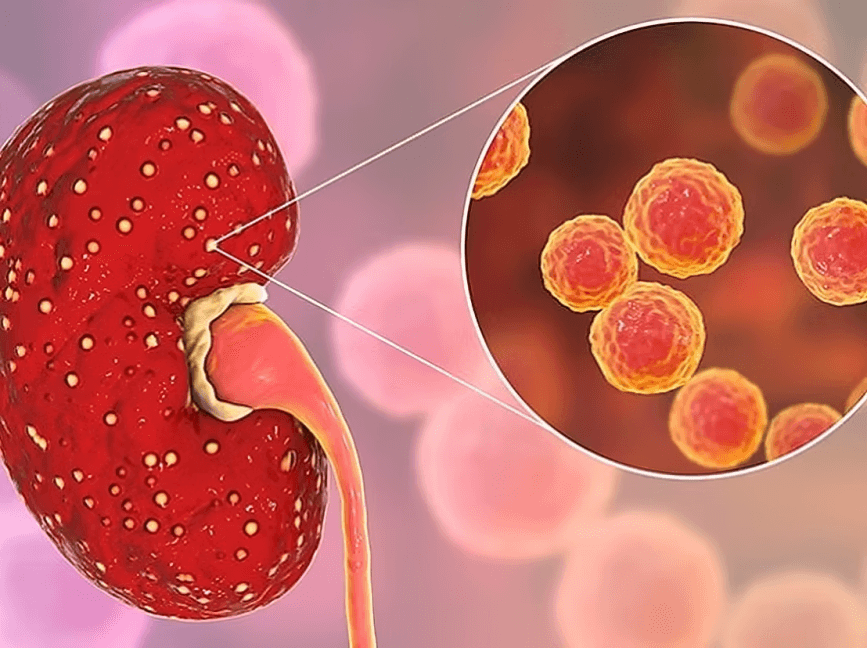
“
The connection between kidney disease and aging is a crucial health topic, as kidney function naturally declines with age. Understanding this connection helps in early detection, prevention, and better management of kidney-related illnesses in the elderly population.1
1
”
Viktor Frankl, a renowned psychiatrist, highlighted that understanding the aging body's changes, including kidney decline, empowers individuals to find meaning and manage chronic illnesses with resilience. 1
As people age, kidney function gradually decreases due to reduced blood flow and filtration capacity, increasing the risk of kidney disease and complications in elderly individuals. 2
Aging kidneys experience structural changes such as scarring and shrinking, which directly impair their ability to filter waste and maintain fluid and electrolyte balance. 3

Chronic conditions like high blood pressure and diabetes, which are more common with age, significantly contribute to the development and progression of kidney disease.
Reduced kidney function in older adults often goes unnoticed because early symptoms are mild and vague, which frequently delays diagnosis and necessary treatment until the disease is more advanced. 4
The glomerular filtration rate (GFR)—a vital measure of kidney health—declines naturally with age, typically by about 1 mL/min each year after the age of 40, gradually reducing filtering efficiency. 5
Age-related kidney changes increase the risk of drug toxicity in elderly patients, as their kidneys lose the ability to clear medications from the body as effectively as in younger individuals. 6
Older adults with kidney disease are at significantly higher risk for cardiovascular complications because weakened kidneys can no longer regulate blood pressure or eliminate fluid effectively. 7
The kidneys' ability to maintain acid-base balance weakens with age, raising the risk of metabolic imbalances, such as acidosis, which can affect multiple systems in elderly individuals. 8

Aging impairs immune response within the kidneys, leaving older adults more prone to infections such as pyelonephritis, a serious bacterial condition that can cause further kidney damage.
Proteinuria, the presence of excess protein in urine, is more common in older adults and serves as an early indicator of kidney damage and the possible progression of chronic kidney disease. 9
Regular screening of kidney function is essential for elderly individuals, particularly those with diabetes or hypertension, as these conditions significantly increase the risk of undetected kidney disease. 10
With aging, kidneys lose the ability to concentrate urine efficiently, increasing the likelihood of dehydration in older adults, especially during illness or exposure to high temperatures. 11
In elderly patients, kidney disease often contributes to anemia due to reduced production of erythropoietin, a hormone critical for stimulating red blood cell formation in the bone marrow. 12
The filtration barrier in aging kidneys becomes less selective, allowing potentially harmful substances to leak into the urine, which can lead to progressive kidney damage if left untreated. 13

The filtration barrier in aging kidneys becomes less selective, allowing potentially harmful substances to leak into the urine, which can lead to progressive kidney damage if left untreated.
Cognitive decline is commonly observed in elderly individuals with kidney disease due to toxin accumulation in the bloodstream, which the kidneys can no longer efficiently remove. 14
Preventive steps like managing blood pressure, avoiding medications that harm the kidneys, maintaining physical activity, and staying hydrated can slow the progression of kidney disease in older adults. 15
Declining kidney function in elderly patients often occurs alongside changes in other organ systems, making a holistic and multidisciplinary approach to healthcare especially important for optimal management. 16
Modern medicine continues to explore how aging impacts kidney regeneration and repair, aiming to improve treatment outcomes for elderly patients with kidney disease. 17


